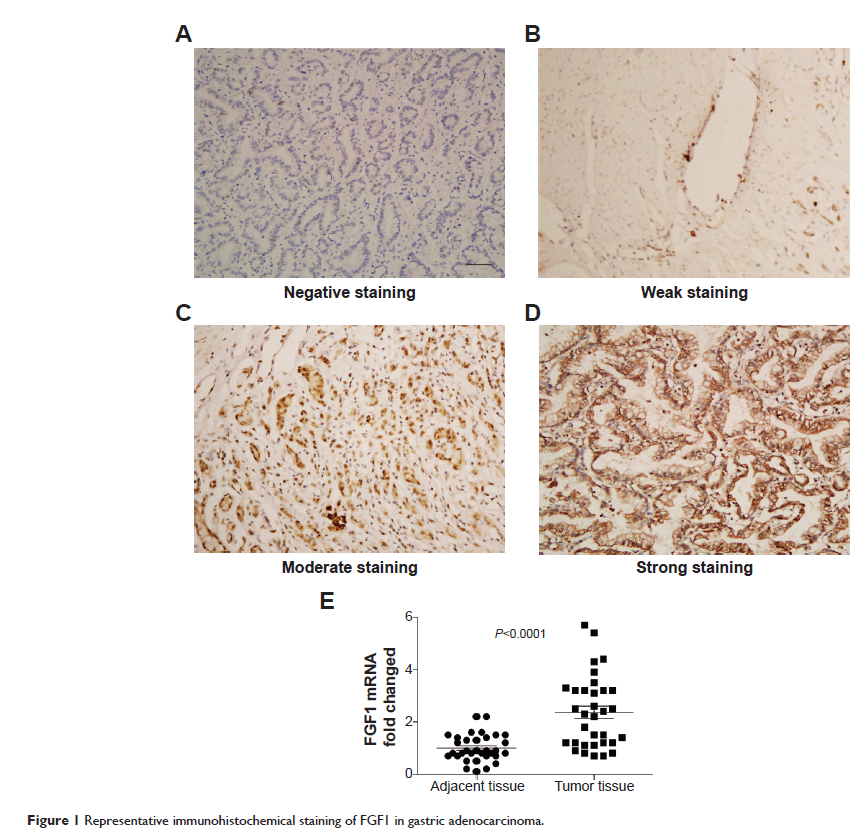102494
论文已发表
提 交 论 文
注册即可获取Ebpay生命的最新动态
注 册
IF 收录期刊
- 3.3 Breast Cancer (Dove Med Press)
- 3.4 Clin Epidemiol
- 2.5 Cancer Manag Res
- 2.9 Infect Drug Resist
- 3.5 Clin Interv Aging
- 4.7 Drug Des Dev Ther
- 2.7 Int J Chronic Obstr
- 6.6 Int J Nanomed
- 2.5 Int J Women's Health
- 2.5 Neuropsych Dis Treat
- 2.7 OncoTargets Ther
- 2.0 Patient Prefer Adher
- 2.3 Ther Clin Risk Manag
- 2.5 J Pain Res
- 2.8 Diabet Metab Synd Ob
- 2.8 Psychol Res Behav Ma
- 3.0 Nat Sci Sleep
- 1.8 Pharmgenomics Pers Med
- 2.7 Risk Manag Healthc Policy
- 4.2 J Inflamm Res
- 2.1 Int J Gen Med
- 4.2 J Hepatocell Carcinoma
- 3.7 J Asthma Allergy
- 1.9 Clin Cosmet Investig Dermatol
- 2.7 J Multidiscip Healthc

已发表论文
纤维原细胞生长因子 1 在胃腺癌中的表达和临床意义
Authors Liu NQ, Zhang JG, Sun SX, Yang LG, Zhou ZJ, Sun QL, Niu J
Published Date March 2015 Volume 2015:8 Pages 615—621
DOI http://dx.doi.org/10.2147/OTT.S79204
Received 13 December 2014, Accepted 19 January 2015, Published 9 March 2015
Approved for publication by Professor Daniele Santini
Background: The clinical significance of fibroblast growth factor 1 (FGF1) has been revealed in several cancers, including ovarian cancer, breast cancer, and bladder cancer. However, the clinical significance of FGF1 in gastric adenocarcinoma has not been explored.
Patients and methods: In our experiments, we systematically evaluated FGF1 expression in 178 cases of gastric adenocarcinoma with immunohistochemistry, and subsequently analyzed the correlation between FGF1 expression and clinicopathologic features. Moreover, FGF1 expression in tumor tissue and corresponding adjacent tissue was detected and compared by real-time polymerase chain reaction. The Kaplan–Meier method and the Cox-regression model were used with univariate and multivariate analysis, respectively, to evaluate the prognostic value of FGF1 in gastric adenocarcinoma.
Results: Higher FGF1 expression rate is 56.7% (101/178) in gastric adenocarcinoma. FGF1 expression in gastric adenocarcinoma was significantly higher than adjacent tissue (P <0.0001). Expression of FGF1 is significantly associated with lymph node invasion (P <0.001), distant metastasis (P =0.013), and differentiation (P =0.015). Moreover, FGF1 overexpression was closely related to unfavorable overall survival rate (P =0.021), and can be identified to be an independent unfavorable prognostic factor (P =0.004).
Conclusion: FGF1 is an independent prognostic factor, indicating that FGF1 could be a potential molecular drug target in gastric adenocarcinoma.
Keywords: fibroblast growth factor 1, gastric adenocarcinoma, prognosis, biomarker, lymph node, gene fusion
Patients and methods: In our experiments, we systematically evaluated FGF1 expression in 178 cases of gastric adenocarcinoma with immunohistochemistry, and subsequently analyzed the correlation between FGF1 expression and clinicopathologic features. Moreover, FGF1 expression in tumor tissue and corresponding adjacent tissue was detected and compared by real-time polymerase chain reaction. The Kaplan–Meier method and the Cox-regression model were used with univariate and multivariate analysis, respectively, to evaluate the prognostic value of FGF1 in gastric adenocarcinoma.
Results: Higher FGF1 expression rate is 56.7% (101/178) in gastric adenocarcinoma. FGF1 expression in gastric adenocarcinoma was significantly higher than adjacent tissue (P <0.0001). Expression of FGF1 is significantly associated with lymph node invasion (P <0.001), distant metastasis (P =0.013), and differentiation (P =0.015). Moreover, FGF1 overexpression was closely related to unfavorable overall survival rate (P =0.021), and can be identified to be an independent unfavorable prognostic factor (P =0.004).
Conclusion: FGF1 is an independent prognostic factor, indicating that FGF1 could be a potential molecular drug target in gastric adenocarcinoma.
Keywords: fibroblast growth factor 1, gastric adenocarcinoma, prognosis, biomarker, lymph node, gene fusion

Download Article[PDF]